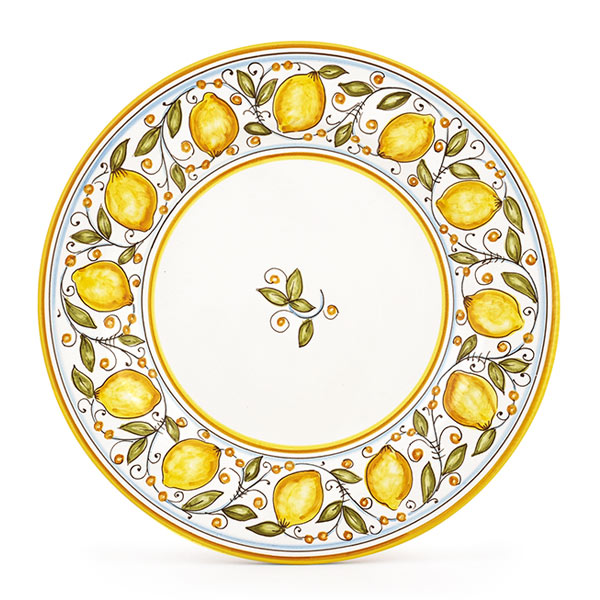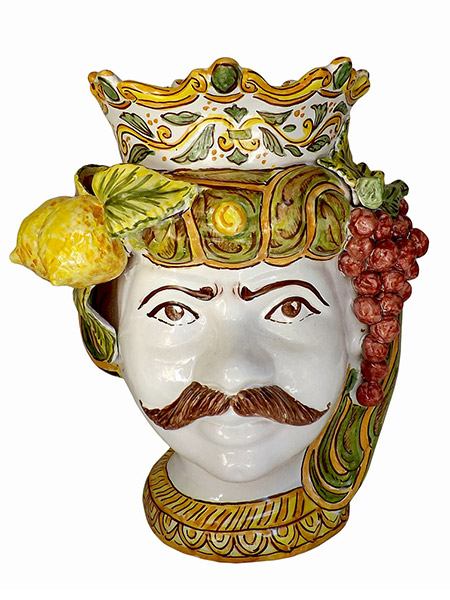Lemons have been decorating Italian pottery for centuries, especially in the Southern regions of our beautiful country. Whether sculpted, molded or painted, lemons are a favorite subject for Sicilian heads, dinnerware, tiles, backsplash panels and a vast array of home décor accessories.
Why are lemon-themed ceramics so popular?
Since antiquity, lemon trees have been considered a valuable luxury and a symbol of prosperity. Their fruit is a symbol of the Mediterranean lifestyle, sunny outdoors, blue skies and leafy greens. Lemons’ sunny yellow evokes energy, light, warmth. No wonder lemons have been inspiring generations of Italian artists and artisans!
Lemons and interior design
Lemon-themed ceramics are the perfect accents for Mediterranean decor style. A geographical variation of the much broader coastal decor trend, it focuses on light and warm color schemes, and extensive use of natural materials such as ceramics, wood, and wrought iron. Statement pieces, such as bold ceramic Sicilian heads, large planters, rich textiles and tilework, are often used to amp up the space’s color.
The true nature of lemons
The proverbial phrase “When life gives you lemons, make lemonade” has somehow given lemons a bad rap. It implies lemons are sour or difficult, when they are quite the contrary. Perhaps the person who coined that phrase just never visited Italy in late spring, when luscious lemons are at the peak of their harvest. Picking a large, untreated lemon directly from a tree overlooking the Mediterranean Sea releases a rush of sweet, citrusy aromas that intoxicate the brain. Left to ripen on the tree, the lemon actually becomes sweeter, so much so that some Italians love to eat them plain with just a pinch of salt.
Although originally from Asia, the lemon tree has been cultivated in Italy since as early as Ancient Roman times. They were grown along the coastline as a prime crop, thanks to their high levels of vitamin C which were important in preventing scurvy among sailors. Today lemons are as “Italian” as olives, espresso, and handmade ceramics. The mild, sunny Mediterranean weather – especially in Sicily and along the Amalfi Coast – is the ideal climate for the tree.







